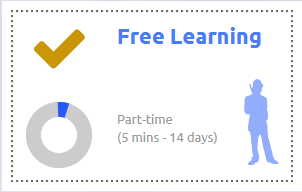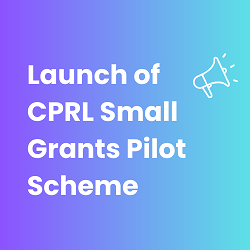You are here
- Home
- Learning
- Free Learning
- Criminology and Forensics
Criminology and Forensics

These free resources are organised into categories aligned to the College of Policing Curriculum and in agreement with police experts. You can study them at any time and anywhere.
Select the duration of study below and you will be taken to resources that match that duration
| An hour or less of study | 1-7 Hours of study | More than 7 hours of study |
|---|
An hour or less of study
Have you watched enough CSI to know what constitutes as good forensic evidence? Are you a believer of 'don't do the crime if you can't do the time'? How much do you know about workplace accidents? Or perhaps you have other beliefs about the criminal justice system and want to find out more? Step into three very different and immersive stories to find out what you really know about crime.
Type of activity: Learning resource
We've all seen CSI, but what exactly is forensic science? Forensic science, or forensics, is the application of science to establish how historical events occurred and thereby provide impartial evidence that can be used in a court of law. In this article, Dr Martin Bootman, Reader in Life Science Research at The Open University, provides and explanation an overview of forensic science.
Activity type: Learning resource
1-7 hours of study
Crimes of the powerful
This course examines the complexities of, and barriers to, setting new criminological research agendas by considering the difficulties associated with conducting research on crimes of the powerful.
Type of activity: Course
More than 7 hours of study
Forensic Psychology: Witness Investigation
Explore how your own mind works, and discover how the limitations of the human brain can lead to major miscarriages of justice. Using videos of real witnesses and from cameras that go behind the scenes of police investigations, this course explores the psychology of eyewitness testimony. You are expected to spend around 3 hours of your time a week, over this 8 week course.
Type of activity: Course
Forensic science and fingerprints
Fingerprints are unique and easily left on a variety of surfaces making them an invaluable aid to solving crimes. This course covers how science can make fingerprints easier to study, how they are used in court and some of the questions about the extent to which fingerprint identification is sound and scientific. Students will learn the principles used in classifying and matching fingerprints (often called marks).
Type of activity: Course
News
- New course launched on “Understanding PCSO powers” 14th March 2024
- CPRL Collaborative dates for your diary 28th February 2024
- Government backs new pet abduction law in pet theft crackdown 8th February 2024
Upcoming Events
Online Seminar: Trust and confidence in policing
Wednesday, May 22, 2024 - 13:00 to 14:30
Online Membership Group Meeting
Thursday, June 13, 2024 - 10:30 to 12:30
